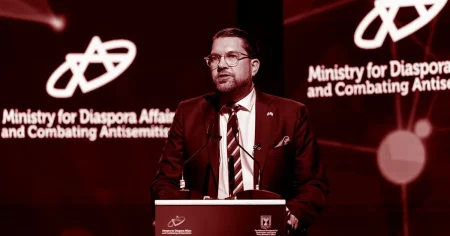The erosion of trust in scientific authority is a concerning trend in the modern world, exemplified by the potential appointment of a prominent vaccine skeptic to a high-ranking health position. This skepticism, often dismissing scientific findings as mere opinion, clashes starkly with the reality of a scientific golden age. Breakthroughs are occurring across diverse fields, from mapping the brain of a fruit fly to uncovering ancient graffiti in Pompeii, offering both practical advancements and profound insights into the universe and ourselves. These discoveries underscore the vital role science plays in improving human lives and expanding our understanding of the world.
The fight against HIV/AIDS demonstrates the transformative power of scientific progress. Once a devastating and stigmatized disease, HIV is now manageable thanks to advancements in antiretroviral therapies, which suppress the virus and significantly reduce transmission risk. New preventative medications, like lenacapavir, offer further hope in preventing infection, particularly in vulnerable populations. Furthermore, researchers are making strides toward a complete cure, marking a potential turning point in the battle against this once-fatal illness. This progress highlights the continuous pursuit of knowledge and improvement that characterizes scientific endeavor.
Beyond medicine, scientific advancements are revolutionizing our understanding of the cosmos. Astronomers have discovered evidence of vast oceans on moons in our solar system, raising the possibility of extraterrestrial life. These findings challenge our assumptions about the uniqueness of Earth’s oceans and expand the potential habitats for life beyond our planet. Simultaneously, research closer to home is leading to earlier and more accurate diagnoses of debilitating diseases like Alzheimer’s. A simple blood test can now detect early signs of the disease, potentially allowing for earlier intervention and treatment, offering hope for improved outcomes for those affected.
The groundbreaking application of CAR T-cell therapy, initially used for cancer treatment, is now showing remarkable promise in treating autoimmune diseases such as multiple sclerosis, rheumatoid arthritis, lupus, and Crohn’s disease. This innovative approach has resulted in complete remission for many patients, offering a potential cure for these previously incurable conditions. This remarkable development underscores the potential for scientific advancements to transform the lives of those suffering from chronic and debilitating illnesses. It also highlights the interconnectedness of scientific disciplines, with breakthroughs in one area often leading to unexpected applications in others.
Archaeological research, coupled with advancements in DNA analysis, is also providing unprecedented insights into ancient civilizations. The analysis of 2,500-year-old remains from the Hallstatt culture in Germany has revealed a matrilineal inheritance system, confirming historical accounts and offering a deeper understanding of power dynamics in early Iron Age societies. This discovery challenges traditional assumptions about patriarchal structures in ancient societies and highlights the importance of scientific evidence in corroborating historical narratives. It demonstrates how scientific methods can shed light on the past, enriching our understanding of human history and societal evolution.
These scientific advancements, spanning medicine, astronomy, archaeology, and beyond, underscore the importance of scientific inquiry and the power of the scientific method. Science, at its core, is a pursuit of truth, requiring free thought, rigorous investigation, and the courage to challenge existing beliefs in the face of new evidence. This pursuit thrives in free societies that value scientific rigor and understand that scientific findings are not mere opinions but rather evidence-based conclusions built on meticulous research and experimentation. The erosion of trust in scientific authority poses a significant threat to progress, and it is crucial to reaffirm the importance of scientific integrity and the pursuit of knowledge in shaping a better future.














